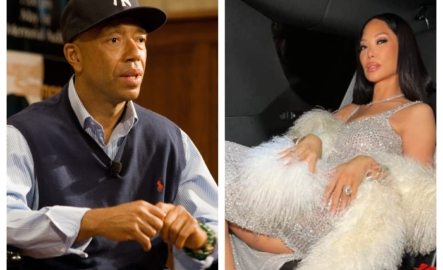“Her voice is rich in the qualities most valuable to a singer. The range is wonderful. It is clear and resonant, exceedingly flexible and pure. Her articulation is perfect, and she sings with a freedom from effort seen rarely, except in the most famous singers. The tones of her voice are powerful and thrilling. It is rather dramatic than emotional.”
That is how the Nashville American once described Flora Batson, who was considered to be the greatest concert singer of the 19th century. Becoming known as the “Double-Voiced Queen of Song” thanks to her soprano-baritone range, Batson was adored by many including world leaders such as Queen Victoria of England, Queen Liliuokalani of Hawaii and Pope Leo XIII.
She wowed crowds with her sweet voice and stage presence and was famed for singing excerpts from operas. Curiously, at the start of her career, she refused an offer to study music on a full scholarship at Storer College. She preferred to sing under the management of social reformer Thomas Doutney at temperance revivals.
She had started life from humble beginnings with her widowed mother, Mary A. Batson, who gave birth to her on April 16, 1864, in Washington, D.C. Batson moved to Providence, Rhode Island, at age three with her mother after the death of her father from injuries in the Civil War. Batson attended school and studied music until age thirteen in Providence when she began her singing career. She sang in local choirs, and by 1878 she was singing for Storer College in Harpers Ferry, West Virginia. She did that for two years and got the chance to study music on a full scholarship but turned it down to be under the management of Doutney.
Batson sang for two years during the temperance revival under manager Doutney and it was during the revival that she officially launched her professional career. Her performances at New York’s Masonic Temple in 1885, singing “Six Feet of Earth Make Us All One Size” ninety successive nights, moved many including John G. Bergen, the white manager of the all-Black Bergen Star Concert Company. He invited her to join his company and she agreed. By 1887, she was known nationally as the company’s leading soprano.
That same year, Batson and Bergen married and their interracial marriage made headlines across the world. The marriage was a blessing to both partners. New York Public Library writes: “While married, Flora continued to sing and brought fame to Bergen’ s company, Bergen Star Concert Company. For instance, a week after her marriage to Bergen, she was declared “Queen of Song” in Philadelphia. In 1888, before an audience of thousands in Steinway Hall, Flora received a diamond necklace from the citizens of New York City. Starting in the fall of 1888, Flora toured Europe and America to great success in every city she visited.”
And besides singing for great leaders like Queen Victoria, Batson also toured Fiji, China, Japan, and India. When her husband and manager Bergen died in 1896, she toured Africa and Australia with Gerad Millar, a Black bassist. Batson passed away in Philadelphia on December 1, 1906. Today, she is known for her signature musical genre — the ballad — with songs such as “The Ship of Fire, “The Last Rose of Summer,” and “The Cows Are in the Corn”, history says.
In her last years, the “Queen of Song” sang mostly for religious organizations and charities as, according to history, she was no more in high demand owing to vaudeville comedy sketches that had taken over.
But most importantly, Batson used her voice to fight for equality. She was once returning from a tour in Australia when she was given a “steerage passage” (the ship’s lowest class) because she was Black. Batson fought this. In the end, she “came back to America first class cabin, and not as a steerage passenger,” according to author Gerard Millar.










